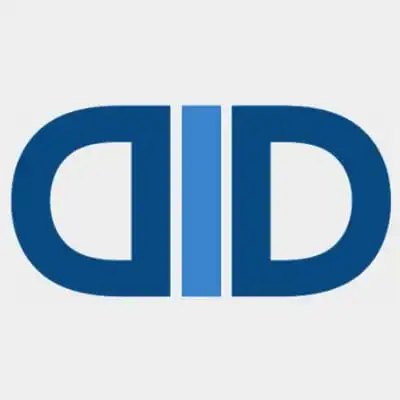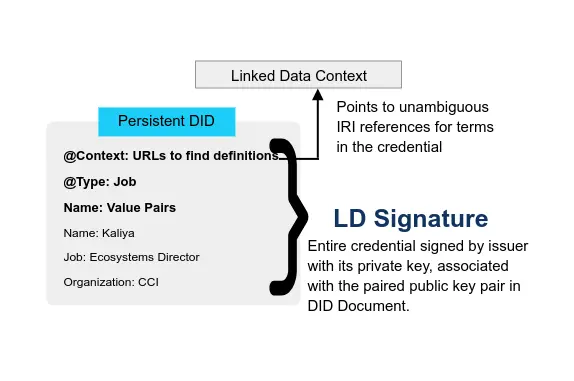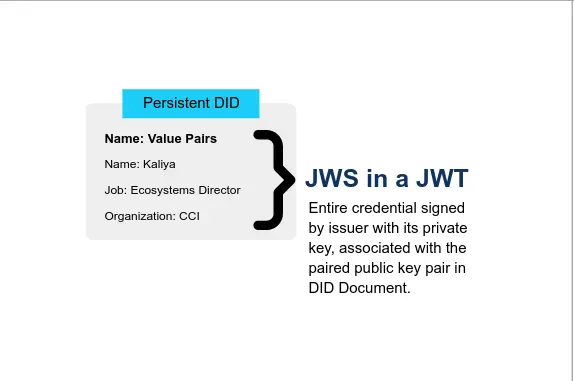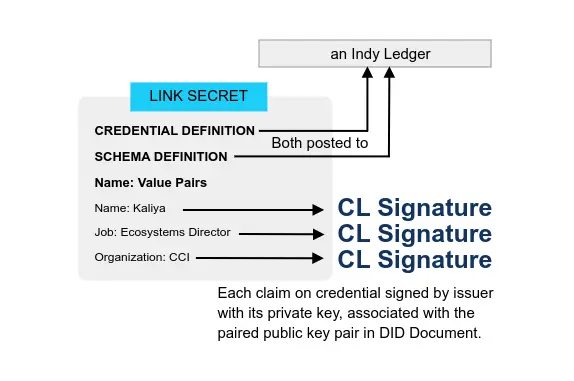Hyland Credentials - Issue verifiable records using the blockchain.
Company
Name: Hyland Credentials
Main: Website, Blog, Forum, Socials: Twitter, Crunchbase, Related: LearningMachine Parent: Hyland Type: Product Date: 2020-02-05 Industry: ID Tech: CredentialsYour organization will find that an engagement with Hyland Credentials is a lot more than buying software, we address the needs of your whole organization. We look forward to working with you to make secure, digital credentialing an enduring part of your institution’s legacy.
Meta
- Study: Optimizing use of content is critical to enhancing customer experiences Related: Hyland Parent: Hyland Type: Study Date: 2023-01-01
- Hyland, Dataswift and Case Western Reserve University partner to advance web-based verifiable credential storage Parent: Hyland Type: Post Date: 2021-11-16
- Hyland acquires blockchain-credentialing provider Learning Machine Related: LearningMachine Parent: Hyland Type: Post Date: 2020-02-05
- Learning Machine wins DHS Grant to align Blockcerts with the W3C specifications for Verifiable Credentials and Decentralized Identifiers. Related: DHS, LearningMachine Type: Post Date: 2020-01-01
- Credential (n.) Related: MIT, Learning Machine Type: Post Date: 2020-01-01 Event: EDUCAUSE 2018
- DHS Awards 159K for Infrastructure to Prevent Credential Fraud Related: LearningMachine Parent: DHS Type: Post Date: 2019-11-12
According to a new commissioned study conducted by Forrester Consulting, organizations recognize that “content is critical to improving the customer experience, but few are able to leverage its full potential.”
The initial phase of the partnership involved building a web-based interface that enables users to easily store and manage their verifiable credentials by uploading them to a user-owned, encrypted Personal data account (PDA), an innovative privacy-preserving solution developed by Dataswift, another strategic partner of xLab. That account is the storage system of a Personal data server legally owned by users themselves and comes with a Data Passporting function that can be called upon by any application, allowing users to license their data on demand, quickly and securely, with any relevant party.
Hyland, a leading content services provider, announced its acquisition of Learning Machine, an innovator in blockchain-anchored digital credentialing solutions. The acquisition was effective February 1, 2020.
Today, Learning Machine is proud to announce that we have won Phase-1 funding for our response to the open call “Preventing Forgery & Counterfeiting of Certificates and Licenses through the use of Blockchain and Distributed Ledger Technology.” The purpose of the call was to develop vendor-neutral technology solutions that prevent the forgery and counterfeiting of official records for immigration, travel, visas, and other use cases pertaining to national and citizen security. Our grant application addressed DHS requirements by proposing an upgrade to the Blockcerts open standard, making it capable of issuing W3C Verifiable Credentials.
Blockcerts was publicly announced at EDUCAUSE in 2016 to an immense room of attendees consisting of CIOs, Registrars, and IT professionals — a presentation which, over the last two years, kicked off a wave of experimentation, press, and interest for using blockchains as a new infrastructure of trust.
Further, MIT has been using the Learning Machine Issuing System to issue official diplomas as Blockcerts to graduates at all levels across the Institute. This October we returned EDUCAUSE 2018 with Mary Callahan, MIT Registrar, to share a progress report on issuing blockchain-based digital diplomas to graduates over the last year and half.
Phase 1 award project “Leveraging Learning Machine’s Commercial Offering in Public Infrastructure for Fraud Prevention” will adapt their current commercial technology using the open-source Blockcerts standard to support emerging global World Wide Web Consortium (W3C) security, privacy and interoperability standards such as decentralized identifiers (DID) and verifiable credentials for credential issuance and verification solutions. The proposed approach enables credential user and DID provider independence from vendor-specific accounts to access credentials and promotes holder control and interoperability.
Explainer
- Remaking Credentials Type: Post Date: 2019-04-19 Tech: Credentials
- Badges and Blockcerts Type: Post Date: 2018-12-13
- Digital Identity Type: Post Date: 2018-10-06
- Flexible Systems Type: Post Date: 2018-10 Tech: Blockchain
- Why Use a Blockchain? Type: Post Date: 2018-09 Tech: Blockchain
- Hosted ≠ Verified Type: Post Date: 2018-09
When desktop computers came into the workplace 25 years ago, the problem of paper remained. How could print layouts be shared and displayed across a variety of electronic machines and operating systems? The most prominent solution that emerged was Adobe’s Portable Document Format (PDF), a proprietary solution released in the 1990’s as a way to share documents that included text formatting and in-line images. Even though more features were added over time, in essence, PDFs operated as a paper analogue for computers.
Education and training providers have long been wrestling with the legacy of the credit hour and how to adapt credentialing to a modern world that values skills more than time spent in the classroom. This is in part why the industry has seen an explosion of traditional and alternative providers that are experimenting with new credential formats appropriate for the information age. One of the questions we most frequently encounter at Learning Machine from these providers is: What are the differences between different credentials formats? The implicit question behind that one is: When should I use different types of digital credentials, and why?
A framework for organizing the categories of digital identity and an analysis of where disruptive innovation is most likely to succeed. […] Learning Machine has made the strategic choice to disrupt paper documents with verifiable digital records (software), rather than competing directly within the traditional identity space. The following analysis explains why. Note that some startup challengers will be named as exemplars in their categories, which is not meant to imply any criticism of those companies. In fact, many of these companies are collaborating behind the scenes on data standards that will form a common foundation for future interoperability.
Top-down initiatives to reconstruct entire sectors like digital identity are too brittle to succeed. Flexible systems require a different mindset. […] unlike every other sector (media, communications, engineering, finance, etc.), official records largely rely on old formats like paper, wax, and PDF for certification, all of which are hard to verify and easy to fake. This is big reason why public blockchains are exciting, because they have the power to prove the authenticity, ownership, and integrity of a natively digital record. The combination of strong cryptography and public blockchains provide a new technical infrastructure that gives people the ability to manage their own records of achievement in a format that is digital, easily shared, and instantly verifiable using a global verification network.
Everyone wants digital records to be shareable and verifiable, but it is only now that we have the technical infrastructure to reliably accomplish that goal. The innovation that makes this possible is blockchain-enabled networks that synchronize around a single truth. While digital signatures and public key infrastructure (PKI) are important pieces of a secure credentialing solution, it is the addition of a decentralized verification network that adds the highest level of security, longevity, and recipient ownership to digital records.
Have you ever seen a person’s certification listed on LinkedIn, and then followed the link to the actual credential? It typically resides on the domain of a software vendor, or on the domain of the issuing institution, with the intention of communicating authenticity. While hosted credentials provide convenience for both credential holders and verifiers, hosting is not enough to provide a secure basis for verification.
Standards
- A Passport to Greater Opportunity Type: Post Date: 2020-01-01
- Blockcerts v3 release, a Verifiable Credentials implementation Related: RWot9, Learning Machine, Blockcerts Parent: WebOfTrustInfo Type: Proposal Date: 2016-12-31 Standard: Blockcerts, Verifiable Credentials
One of the earliest challenges of statecraft was developing a legible view of its populations. Translating local complexities into simple and summary descriptions was necessary to enable traditional state functions like taxation and planning. This need to describe impelled various standardization efforts, including permanent last names, land registries, and population surveys, which gave society a visible shape that could be centrally recorded and used within legal frameworks to wield state power.
As the standards around Verifiable Credentials are starting to take form, different flavors of “verifiable credentials-like” data structures need to make necessary changes to leverage on the rulesets outlined and constantly reviewed by knowledgeable communities such as the W3C. The purpose of this paper is to identify all of the changes needed for Blockcerts to comply with the Verifiable Credentials (VCs) and Decentralized Identifiers (DIDs) standards and to expand upon the additional benefits of using a blockchain in combination with Verifiable Credentials. This paper is meant to act as an explainer in which a formal specification can be created.
This paper proposes multiple implementation options for several properties. The intention is that we can engage the Blockcerts / Verifiable Credential communities and see what fits best.





